It happened. The unthinkable, the unimaginable, the unprecedented… In a late-evening announcement on Sunday, November 20, 2022, it was made official: beleaguered CEO of The Walt Disney Company Bob Chapek was gone. Less than three years after he was hastily elevated into the position (replacing long-time predecessor and beloved industry visionary Bob Iger) and just days after announcing he intended to launch waves of layoffs and hiring freezes in his data-oriented, revenue-maximizing approach to leading the world’s largest entertainment company, Chapek had been given a pink slip himself…
The unceremonious exit of the war-torn CEO was long a daydream of Disney fans – who largely detested Chapek’s management style and the strictly-financial lens through which he seemed to view The Walt Disney Company. Dreamier still, though, was Disney’s replacement. In an internal email to Cast, retired CEO Bob Iger announced with “gratitude and humility – and I must admit, a bit of amazement” that he would return to his former post, officially becoming the CEO of Disney once more.
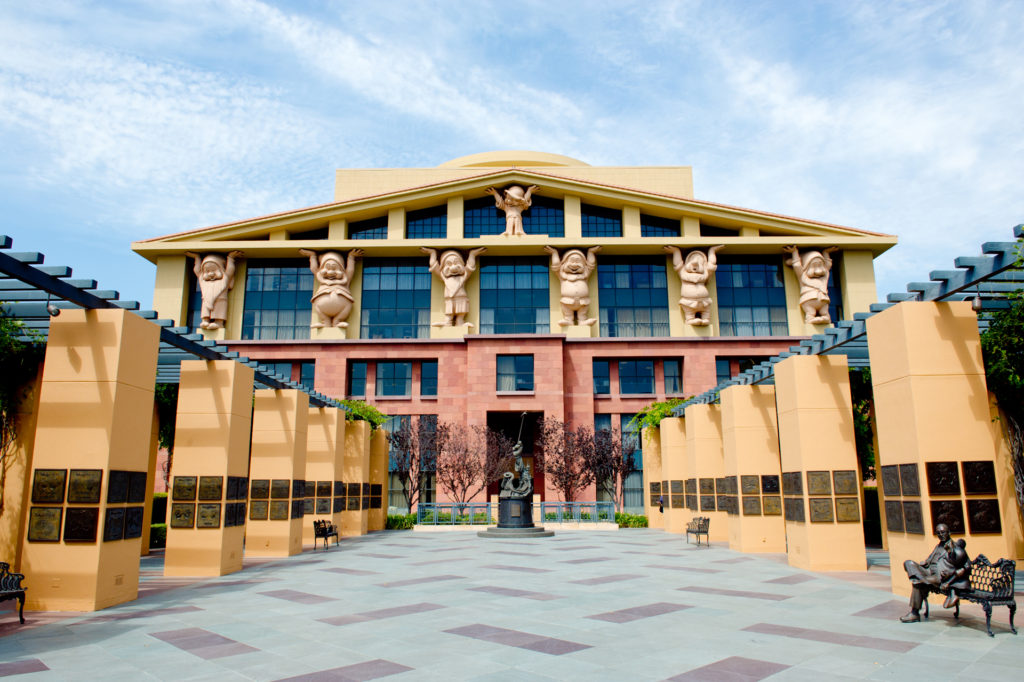
As for Chapek? Well… though Disney’s Board formally thanked Chapek for his leadership during the pandemic and wished him well, the reported $28 million golden parachuting of a divisive CEO mere months after a fraught contract extension speaks volumes – that the payout and embarrassment were viewed by Disney’s Board of Directors as worthwhile.
Full disclosure, if you aren’t sure who these Bobs are or what the kerfuffle is about, you’ll want to start with our “Who’s Who at the Mouse House” Special Feature, digging into the backgrounds of these two leaders. Because now, with Chapek’s involvement with The Walt Disney Company officially concluded, we wanted to reflect on the exited leader’s era with four important things to consider when we discuss Chapek and his short-lived tenure as Disney’s CEO.

This in-depth article is just one entry in Park Lore’s one-of-a-kind Special Features collection, where we explore the threads that connect between rides, parks, and pop culture! From Imagineering’s secret Society of Explorers and Adventurers, to the history of Chuck E. Cheese; from Disney and Universal’s AVENGERS: “Custody War” to the two-part tale of animation’s rebirth in the generation-defining ’90s Disney Renaissance!
Special Features are typically available exclusively for those who support this evolving theme park history project with a monthly Membership. It’s been unlocked for a limited time, but if you enjoy what you read, consider becoming a Park Lore Member for as little as $2 / month!
1. Bob Chapek’s first mortal sin was succeeding Bob Iger
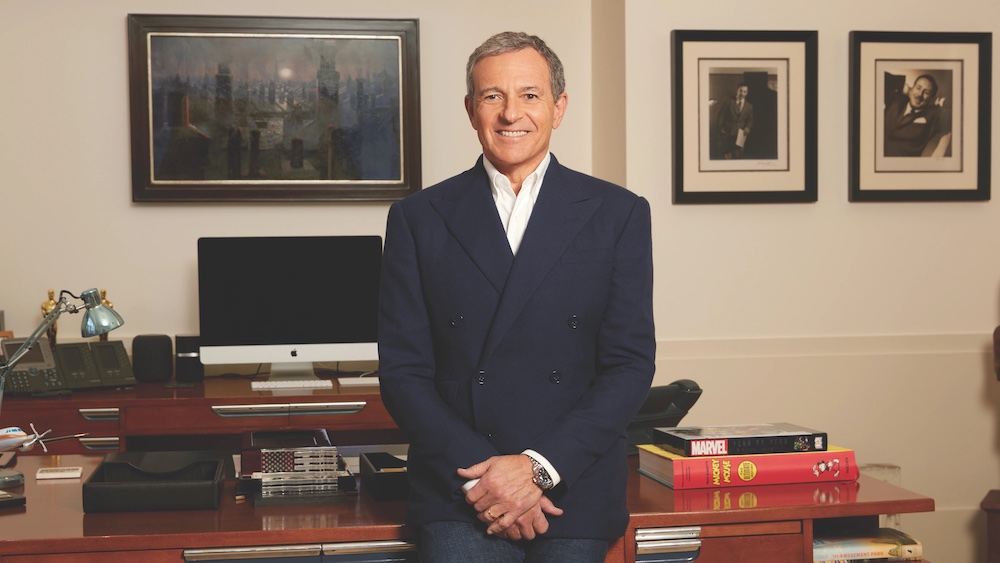
Bob Iger was (and clearly, remains) a uniquely good leader for The Walt Disney Company, and a uniquely stabilizing presence in the entertainment industry. As we explored in our “Who’s Who” feature, Iger is perhaps the most transformative leader at any entertainment conglomerate in the last half century; indeed, perhaps since Walt Disney himself.
With practically prophetic precision, Iger seemed to recognize the coming “Content Wars” that have seen Hollywood powerhouses acquire, license, and leverage intellectual property (IP) into increasingly-gargantuan portfolios, applied across streaming, products, and (Disney’s secret weapon) theme parks. Iger’s first fifteen years with Disney began with the game-changing $7.4 billion acquisition of Pixar in 2007, followed in short-order by the multi-billion-dollar purchases of Marvel in 2009, Lucasfilm in 2012, and the unimaginable $72 billion purchase of fellow “Big Six” movie studio 20th Century Fox in 2019.

That’s to say nothing of Iger’s immense investment in Disney’s theme parks, with the $1.2 billion redesign of Disney California Adventure and the age of “Living Lands” – from Cars Land to Star Wars: Galaxy’s Edge – falling under Iger’s watch. Likewise, Iger’s legacy-leaving investment must’ve been Shanghai Disneyland, the no-holds-barred expansion into mainland China that redefined what a Disneyland could be.
Bigger picture, though, Bob Iger is a sort of an industry legend in his own right. An immensely well-respected and well-liked figure in Hollywood, Iger famously tended toward the creative side of the business, empowering artists, trusting his team, and making big, bold moves by following his gut. Approachable, warm, and highly public-facing, Iger was both a trusted and well-proven leader in the minds of financiers and a transformational leader for Cast and fans. Frankly, no one can quite fill his shoes. (As evidence, Iger’s contract was initially set to expire in 2014, but was extended to 2016, then 2018, then 2019, then 2021 as the development of a succession plan never seemed to coalesce.)
Anyone would have trouble following in Iger’s footsteps. But Chapek’s ascent was made even more difficult, compelling us to acknowledge…
2. Bob Chapek was placed in an impossible situation, and didn’t have a good path out.
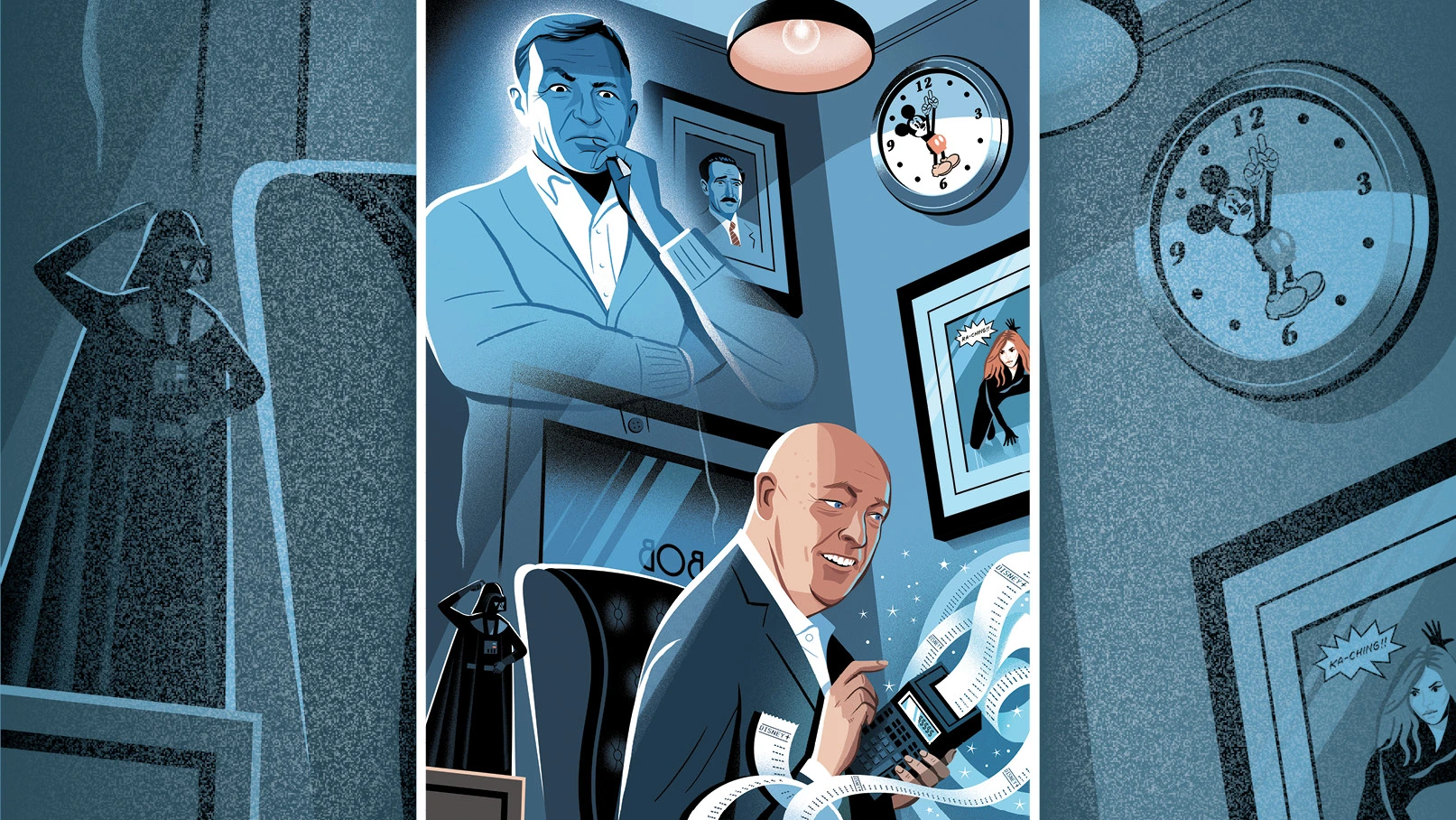
No one could argue in good faith that the timing of Iger’s exit from the CEO post was a coincidence. Obviously, rumblings of what would be named COVID-19 began in late 2019, and by early 2020, it was clear that the rapidly-spreading virus would impact global markets for months (and as it turned out, years). Iger announced on February 25, 2020 that he was leaving the CEO role, “effective immediately,” 22 months before the end of his extended contract. Given the odd circumstances, he stayed on in a custom-created role (“Executive Chairman”) with intent to coach a successor while focusing more on the creative side of the company and in so doing, taking little responsibility for the financial.

That job would fall to Bob Chapek – a man who pretty evidently was not subject to years and years of preparation under Iger’s tutelage, but who would do in a pinch. A clear “numbers guy,” Chapek was forged in the fires of Disney Consumer Products (where he served for nearly three decades), building a career based on data, licensing fees, and minimizing costs that, by 2012, made DCP the highest-earning licensing body in entertainment.
Accepting the CEO role pretty much assured Chapek would be a “fall guy” whose primary purpose was to keep Iger’s legacy from being dented by the pandemic’s inevitable financial fallout. Frankly, he probably shouldn’t have taken the job at all – some industry insiders anticipated from the start that once the pandemic’s worst was over, Iger would return triumphant, settling back into the CEO role and ousting his own successor. (Which, as we know, is pretty much exactly what happened, as if by design.)
In fairness, there are probably very few people on Earth who could be handed the baton of running The Walt Disney Company at a moment’s notice and take off running. That task became all the more impossible when the real impacts of COVID struck. A “data guy” might’ve actually been the right choice to shelter Disney during the greatest economic shutdown in history and very long road back to normalcy after. But in the long term, managing Disney with a scarcity mindset and with exclusively data-driven decisions certainly wouldn’t engender devotion among fans, excitement among the public, nor innovation among cast. Which brings us to…
3. Bob Chapek wasn’t well-suited to be CEO of The Walt Disney Company, and everyone knew it.
Disney Tourist Blog put it simply: “Bob Chapek Didn’t ‘Get‘ Disney.” Len Testa of Touring Plans opined in the New York Times, “Bob Chapek Didn’t Believe in Disney Magic.” And you’d find very few inside or outside of the company who’d bother to disagree.
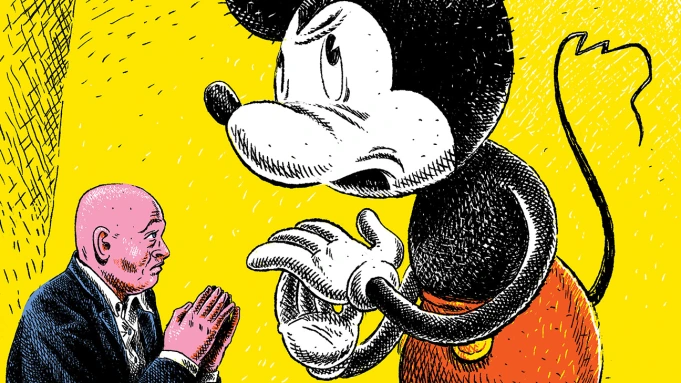
From the moment Chapek’s ascension was announced, industry insiders were skeptical, mustering half-hearted pleas to “give ‘im a chance” at best. For fans, Chapek’s selection was a red-alert, “worst case scenario.” (The latter Bob’s few years overseeing the Disney Parks division were proof enough that his penchant for franchises, low-cost overlays, slashed perks, new up-charges, and merciless “optimization” were damaging enough without being proportionally scaled to the entire company.)
As we can now easily assess in retrospect, Chapek did stick to his data-oriented guns. Allegedly despite even Iger’s expectations that Chapek would move slowly in taking charge of the company, Chapek raced headlong into reorganizing Disney’s corporate structure around streaming, surrounding himself in data-oriented decision makers and sidelining “Iger loyalists” in creative domains. (Not coincidentally, the same mindset and organizational structure that lead to Disney Parks’ last Dark Age in the early 2000s.)
According to the Hollywood Reporter, at a shared executive retreat during Chapek and Iger’s overlaps as CEO and Executive Chairman, the outgoing Iger reportedly commented to the assembled company brass, “In a world and business that is awash with data, it is tempting to use data to answer all of our questions, including creative questions. I urge all of you not to do that.” The statement was seen by many as a repudiation of his own successor’s M.O. But clearly, the message didn’t stick.
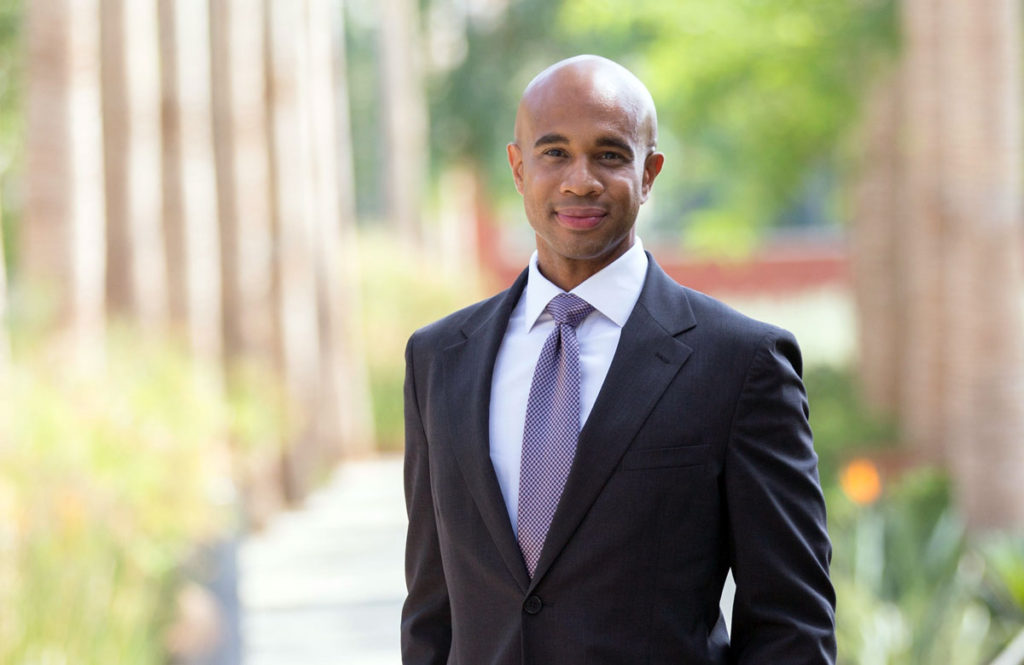
Chapek brought his controversial and longtime ally Kareem Daniel from Disney Consumer Products to head a new Disney Media and Entertainment (DMED) division, stripping budgeting responsibilities from managers and centralizing it under Daniel. Instead, DMED (and more specifically, Daniel himself) alone would determine projects’ budgets as well as their release medium and schedule (streaming, theatrical, etc.).
(On Iger’s first day back, he quickly dismissed Daniel, returned budgetary choices to managers, and announced that “DMED” would go the way of the dodo, saying, “[i]t is my intention to restructure things in a way that honors and respects creativity as the heart and soul of who we are.”)
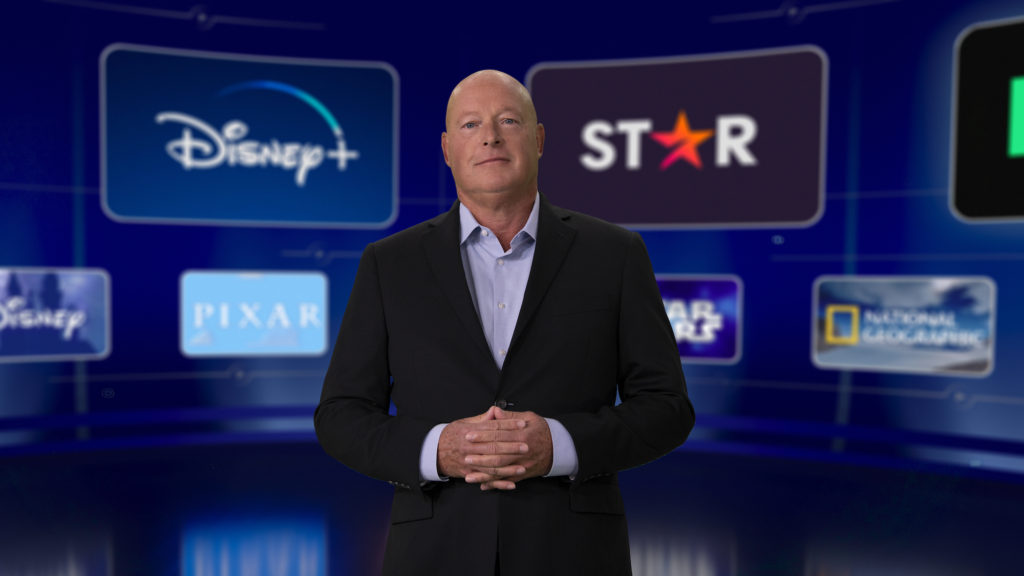
Though he wouldn’t have described it this way, Chapek’s vision was of a top-heavy, calculated, and cold company that operated as a data-oriented, algorithmically-decided media machine, focused on leveraging its franchises through products and brand loyalty centers – “Disney+ Parks.”
But to pretend any of that was unexpected is silly. Chapek was a man with three decades of work history with Disney making his approach crystal clear; he was the unapologetic poster child of the “finance guy.” In his thirty years with Disney, Chapek was always he was the hard-nosed, data-oriented, budget hawk trained to seek out franchisable brands and product tie-ins.
Chapek was the guy who trusted spreadsheets, not his gut. He was inexperienced in dealing with Hollywood talent; saw the theme parks as “brand loyalty centers” meant to be filled with IP and bolstered by micro-transactions rather than historic, beloved, important cultural places; laser-focused on what he called the “synergy machine”; hellbent on reorganizing the company around the what he called a “franchise flywheel” orientation and the big business of streaming – a venture that precisely no one has figured out how to make profitable.
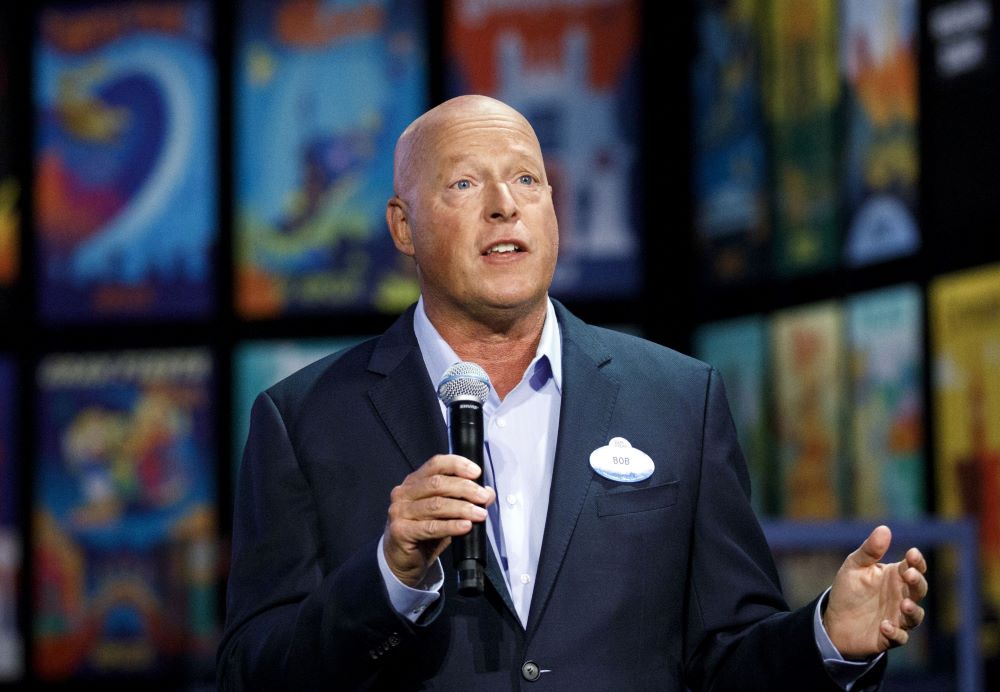
So let’s be clear: Chapek didn’t pull a “bait and switch.” His management style wasn’t a surprise. He was exactly the kind of CEO anyone – including fans, entertainment insiders, Bob Iger and the Board of Disney – knew he would be.
That’s why claims of shock or dismay ring hollow. It was fairly evident to just about everyone inside and outside of Disney what Chapek’s priorities were and what his management style would look like. It’s easy to imagine Chapek at home reflecting on his time as CEO and wondering where, exactly, he broke from expectations. It’d be a fair question for him to have since just about every move Chapek made was predictable given his history and the circumstances he was set down in.
It’s not Bob Chapek’s fault that he was pushed into the frontlines at the worst possible moment in the economy’s history. It’s also not Bob Chapek’s fault that people didn’t like that his management style was… well… the same he’d used for three decades at Disney. But before to get to thinking that we’re Chapek fans or that we’re willing to make excuses for the now-dismissed former CEO, read on…


